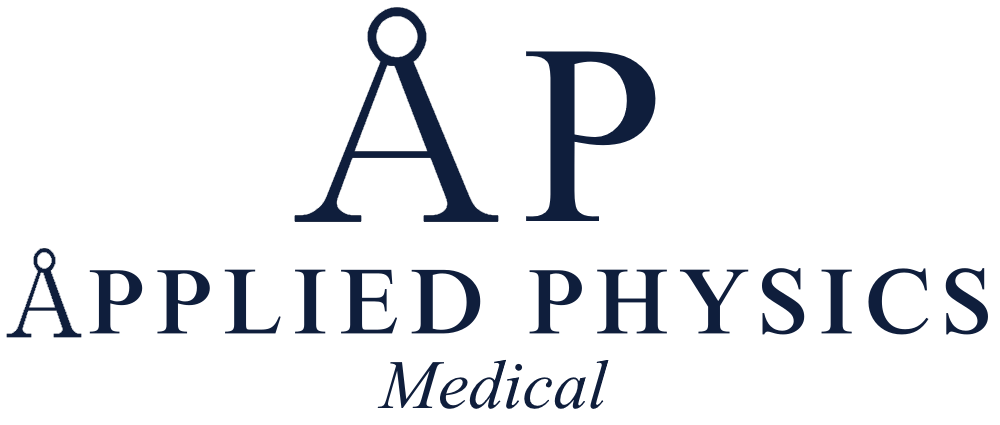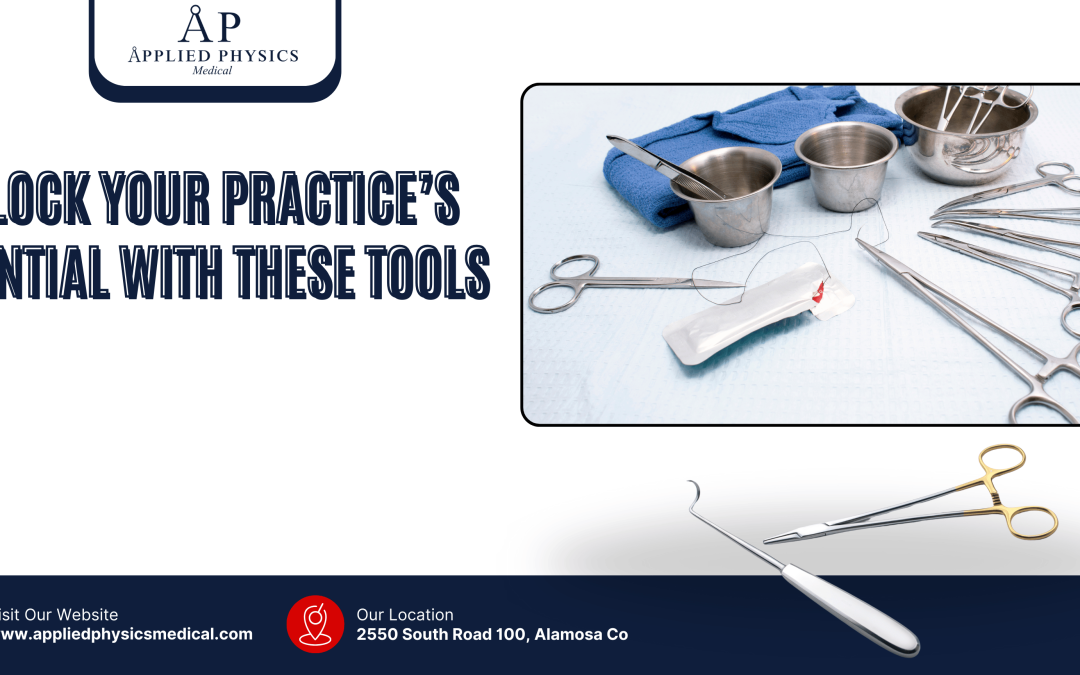Introduction
In the rapidly evolving landscape of healthcare, practices must adapt to new technologies to remain competitive and efficient. The integration of various digital tools can significantly enhance operational workflows, improve patient care, and ultimately unlock the full potential of a medical practice. By leveraging innovative solutions, healthcare providers can streamline their processes, reduce administrative burdens, and focus more on delivering quality care to their patients.
This article explores several essential tools that can transform a practice’s operations and enhance overall performance. The adoption of these tools not only improves efficiency but also fosters a more patient-centered approach. As practices embrace technology, they can better meet the needs of their patients, leading to higher satisfaction rates and improved health outcomes.
From practice management software to telemedicine platforms, each tool plays a crucial role in modernizing healthcare delivery and ensuring that practices can thrive in an increasingly digital world.
Key Takeaways
- Practice management software can streamline your workflow and improve efficiency in your practice.
- Telemedicine platforms can enhance patient engagement and provide convenient care options.
- Secure messaging apps can improve communication between healthcare providers and patients.
- Electronic Health Records (EHR) systems can boost efficiency and improve patient care.
- Billing and coding software can increase revenue and streamline the billing process for your practice.
Streamline Your Workflow with Practice Management Software
Practice management software is the cornerstone of a medical practice’s operations, providing a comprehensive solution for scheduling, billing, and patient management.
Streamlining Administrative Tasks
By automating routine tasks such as appointment scheduling and insurance verification, this software reduces the administrative burden on staff, allowing them to focus on patient care. For instance, features like automated reminders can decrease no-show rates, ensuring that providers can maximize their time with patients.
Data-Driven Decision Making
Moreover, practice management software often includes reporting and analytics capabilities that enable practices to track key performance indicators. This data-driven approach allows healthcare providers to identify trends, optimize resource allocation, and make informed decisions about their operations.
Enhancing Productivity and Organization
By streamlining workflows through this software, practices can enhance productivity and create a more organized environment that benefits both staff and patients.
Enhance Patient Engagement with Telemedicine Platforms
Telemedicine platforms have revolutionized the way healthcare is delivered, offering patients the convenience of virtual consultations from the comfort of their homes. This technology not only expands access to care but also enhances patient engagement by allowing individuals to connect with their healthcare providers more easily. For example, patients in rural areas can receive specialist consultations without the need for extensive travel, thereby improving their overall healthcare experience.
Additionally, telemedicine platforms often include features such as secure messaging and appointment scheduling, further facilitating communication between patients and providers. By fostering a more interactive relationship, these platforms empower patients to take an active role in their healthcare journey. As a result, practices that implement telemedicine solutions can see increased patient satisfaction and adherence to treatment plans.
Improve Communication with Secure Messaging Apps
| Metrics | Results |
|---|---|
| Increased Team Collaboration | 20% improvement |
| Reduced Email Overload | 30% decrease |
| Enhanced Data Security | 100% compliance |
| Improved Response Time | 25% faster |
Effective communication is vital in healthcare settings, where timely information exchange can significantly impact patient outcomes. Secure messaging apps provide a safe and efficient way for healthcare professionals to communicate with each other and with patients. These platforms ensure that sensitive information remains confidential while allowing for real-time discussions about patient care.
For instance, a physician can quickly consult with a specialist regarding a patient’s condition without the delays associated with traditional communication methods. Moreover, secure messaging apps can enhance patient engagement by enabling direct communication between patients and their healthcare teams. Patients can ask questions, request prescription refills, or receive test results without needing to schedule an in-person visit.
This immediacy not only improves patient satisfaction but also fosters a collaborative approach to healthcare, where patients feel more connected to their providers.
Boost Efficiency with Electronic Health Records (EHR) Systems
Electronic Health Records (EHR) systems have become indispensable tools for modern medical practices. By digitizing patient records, EHRs streamline documentation and facilitate easy access to critical information. Healthcare providers can quickly retrieve patient histories, lab results, and treatment plans, which enhances clinical decision-making and reduces the likelihood of errors.
For example, a physician can review a patient’s medication history in seconds rather than sifting through paper files. Furthermore, EHR systems often include features that support interoperability, allowing different healthcare providers to share information seamlessly. This capability is significant for coordinating care among specialists and primary care providers.
By improving the flow of information across the continuum of care, EHRs contribute to better patient outcomes and more efficient healthcare delivery.
Increase Revenue with Billing and Coding Software
Reducing Errors and Improving Revenue Cycle Management
By leveraging billing and coding software, medical practices can significantly reduce the risk of errors and improve their revenue cycle management. This software automates coding processes, verifies claims, and ensures that all necessary information is included, reducing the likelihood of errors and rejections.
Analytics Tools for Informed Decision-Making
In addition to automating coding processes, billing and coding software often provides analytics tools that help practices identify trends in billing and revenue generation. By analyzing this data, practices can make informed decisions about service offerings and pricing strategies, ultimately improving their financial performance.
Enhancing Financial Performance and Patient Care
Effective billing and coding software enhances financial performance and allows practices to allocate resources more effectively toward patient care. By streamlining billing and coding processes, practices can focus on providing high-quality care to their patients, leading to better health outcomes and increased patient satisfaction.
Enhance Patient Care with Clinical Decision Support Tools
Clinical decision support tools are designed to assist healthcare providers in making informed clinical decisions at the point of care. These tools leverage evidence-based guidelines and algorithms to provide recommendations tailored to individual patient needs. For instance, a decision support tool might alert a physician about potential drug interactions or suggest appropriate diagnostic tests based on a patient’s symptoms.
By integrating clinical decision support into everyday practice, healthcare providers can enhance the quality of care they deliver. These tools improve diagnostic accuracy and promote adherence to best practices and clinical guidelines. As a result, patients benefit from more personalized care that is grounded in the latest medical evidence.
Ensure Compliance with Regulatory Requirements Using Compliance Management Software
In an era of increasing regulatory scrutiny, compliance management software has become essential for healthcare practices striving to meet legal and ethical standards. This software helps organizations track regulatory changes, manage risk assessments, and ensure adherence to policies related to patient privacy and data security. For example, compliance management tools can automate audits and reporting processes, making it easier for practices to demonstrate compliance during inspections.
Moreover, these systems often include training modules that educate staff about compliance requirements and best practices. By fostering a culture of compliance within the organization, practices can mitigate risks associated with non-compliance while enhancing their reputation among patients and regulatory bodies alike. Ultimately, effective compliance management software not only protects practices from legal repercussions but also contributes to a safer environment for patient care.
Conclusion
These tools can significantly boost your practice’s efficiency and effectiveness. By streamlining operations, they allow for better management of daily tasks and improved patient care. Additionally, incorporating these tools can lead to enhanced communication within your team and with patients, fostering a more collaborative environment. They also provide valuable insights through data analytics, helping you make informed decisions. Ultimately, these advancements can drive growth and success for your practice, unlocking its full potential.


